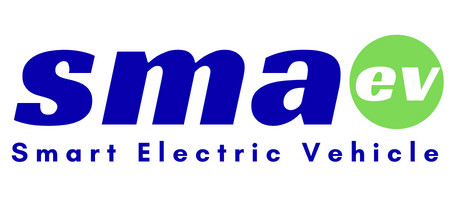- Technology demonstrator with innovative solutions to enhance quality of life and road safety in cities, protect the climate, conserve resources, and improve driver health and safety
- Fine particle filters on the front module and underbody reduce emissions by more than 50 percent
- Energy from the solar roof enables range to be extended by several thousand kilometres per year
- Innovative use of recycled materials demonstrates the potential of a circular economy
- Increased thermal efficiency through heating close to the body increases comfort and extends vehicle range
- As of the second half of 2022 Mercedes‑Benz Vans will be successively rolling out a sustainable repair concept for high-voltage batteries in all van segments
Stuttgart. Last-mile vans that are climate neutral, produce their own green electricity and can actively improve the air quality in cities: with its technology demonstrator, the Sustaineer (SustainABILITY PIONeer), Mercedes‑Benz Vans is providing us with a tangible impression of just how sustainability in urban delivery operations may look in the future. The fully electric van based on the Mercedes-Benz eSprinter combines a variety of innovative solutions designed to improve the quality of life in cities, to conserve resources and protect the climate, and to better the health and safety of the driver and other road users. These include a fine particle filter on the front module and underbody, a solar panel on the roof, component parts made of recycled materials as well as a heating system which is close to the body. The innovations and technical solutions that the SUSTAINEER is fitted with have been designed with the possibility of series production in mind, so that their use in future Mercedes-Benz Vans vehicle generations is feasible.
Sustainable business strategy covering the full life cycle
Mercedes-Benz is convinced of the ecological and economic advantages of battery-electric vans and is preparing to go fully electric before the end of the decade – wherever market conditions allow. As part of the “Ambition 2039” business strategy, Mercedes‑Benz Vans is pursuing the objective of making the fleet of private and commercial vans carbon neutral throughout their complete life cycle – from the development phase through to the supply network, from the company’s own manufacturing processes and the electrification of products through to the use of renewable energy for the operation of electric vehicles. As of 2022, production will be carbon neutral at all company-owned van factories worldwide from 2022 and only use electricity from renewable energy sources.
Locally emission-free in every segment, from “electric first” to “electric only”
Mercedes-Benz Vans has firmly anchored its leadership aspiration for electromobility in its strategy and is systematically electrifying all model series. Customers, fleet operators and vehicle body builders can already choose from four battery-electric models: the eVito panel van, the eSprinter, the eVito Tourer and the EQV. In the coming year, the portfolio of electric vehicles will be extended to include the small vans segment with the addition of the eCitan and the EQT. This will make Mercedes-Benz the only manufacturer in the world to offer a locally emission-free model in all van segments – and that is only the next step on the way to a fully electric future. From the middle of the decade on, all new vehicle architectures will be electric only. To this end, Mercedes-Benz Vans is developing a completely new electric only van architecture called VAN.EA.
In 2022: Mercedes-Benz Vans will roll out a sustainable repair concept for batteries
In the second half of 2022, Mercedes-Benz will be successively roll out a sustainable repair concept in all van segments to prolong the life cycle of the high-voltage batteries installed in its vehicles. To the three Rs in the circular economy of “reduce”, “reuse”, “recycle”, a fourth can now be added: “repair”. In addition to this, Mercedes-Benz Vans is also pushing for batteries to be recycled to the greatest extent possible. By 2030, the aim is to reduce the use of primary resources used in drive systems and battery technology by 40 percent compared with today’s figure. To protect human rights, the automotive manufacturer will only procure battery cells containing lithium and cobalt from certified mines in the future. Furthermore, every stage of the battery cell providers’ supply chains will be inspected according to OECD guidelines.
Source: Daimler AG, https://media.daimler.com/marsMediaSite/en/instance/ko.xhtml?oid=51739764&ls=L3NlYXJjaHJlc3VsdC9zZWFyY2hyZXN1bHQueGh0bWw_c2VhcmNoVHlwZT1mbGV4JnNlYXJjaFN0cmluZz1OTVNfRmxleFNlYXJjaF9DdXJyZW50TmV3cyZyZXN1bHRJbmZvVHlwZUlkPTQwNjI2JmZsZXhJbmZvVHlwZXM9NDA2MjYlMkM0MDYzMA!!&rs=0






